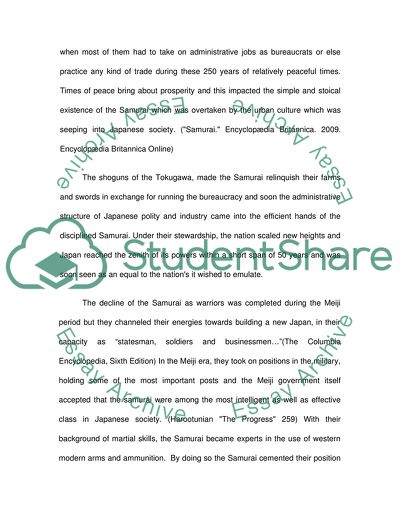Cite this document
(“Samurai Warriors Research Paper Example | Topics and Well Written Essays - 1000 words”, n.d.)
Samurai Warriors Research Paper Example | Topics and Well Written Essays - 1000 words. Retrieved from https://studentshare.org/history/1554343-samurai-warriors
Samurai Warriors Research Paper Example | Topics and Well Written Essays - 1000 words. Retrieved from https://studentshare.org/history/1554343-samurai-warriors
(Samurai Warriors Research Paper Example | Topics and Well Written Essays - 1000 Words)
Samurai Warriors Research Paper Example | Topics and Well Written Essays - 1000 Words. https://studentshare.org/history/1554343-samurai-warriors.
Samurai Warriors Research Paper Example | Topics and Well Written Essays - 1000 Words. https://studentshare.org/history/1554343-samurai-warriors.
“Samurai Warriors Research Paper Example | Topics and Well Written Essays - 1000 Words”, n.d. https://studentshare.org/history/1554343-samurai-warriors.


